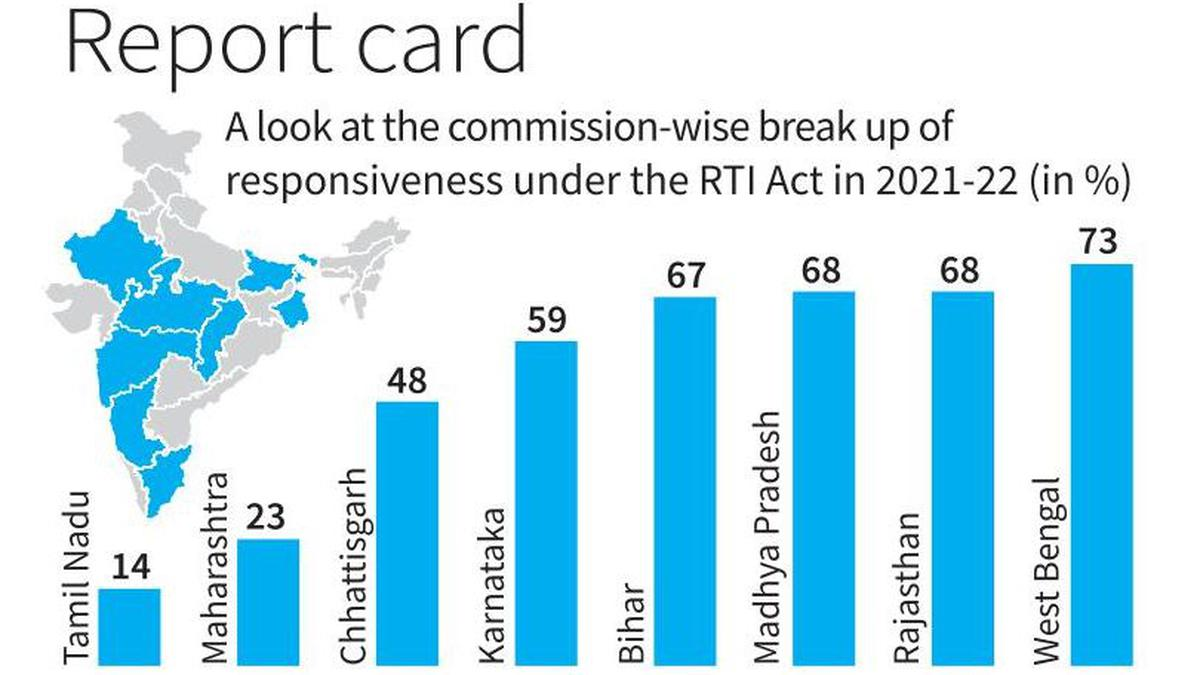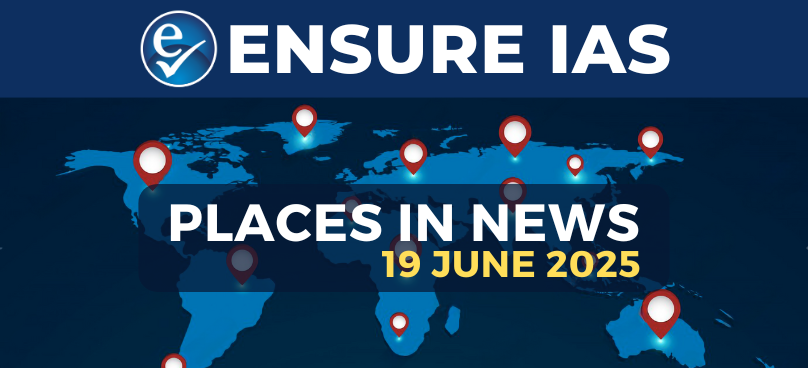- Courses
- GS Full Course 1 Year
- GS Full Course 2 Year
- GS Full Course 3 Year
- GS Full Course Till Selection
- Answer Alpha: Mains 2025 Mentorship
- MEP (Mains Enrichment Programme) Data, Facts
- Essay Target – 150+ Marks
- Online Program
- GS Recorded Course
- Polity
- Geography
- Economy
- Ancient, Medieval and Art & Culture AMAC
- Modern India, Post Independence & World History
- Environment
- Governance
- Science & Technology
- International Relations and Internal Security
- Disaster Management
- Ethics
- NCERT Current Affairs
- Indian Society and Social Issue
- NCERT- Science and Technology
- NCERT - Geography
- NCERT - Ancient History
- NCERT- World History
- NCERT Modern History
- CSAT
- 5 LAYERED ARJUNA Mentorship
- Public Administration Optional
- ABOUT US
- OUR TOPPERS
- TEST SERIES
- FREE STUDY MATERIAL
- VIDEOS
- CONTACT US
Report Card of RTI Responsiveness
Report Card of RTI Responsiveness
05-01-2023

Report Card of RTI Responsiveness
Why in News?
Recently, Satark Nagrik Sangathan (SNS) has released a report card of ‘Responsiveness 2021-22’ under the RTI (Right to Information) Act, which shows that Tamil Nadu has been the worst performing Indian state under RTI responsiveness, providing only 14% of the information sought or asked.
Key Highlights of the Report Card are:
- After Tamil Nadu, Maharashtra is the 2nd worst performing Indian state, sharing only 23% of the information asked for.
- Only 10 Information Commissioners (ICs) provided full information in response to the RTI applications filed as part of this assessment. These included Andhra Pradesh, Haryana, Jharkhand and northeastern States of Sikkim, Nagaland and Tripura.
- The State Information Commission (SIC) of Bihar, which had failed to provide any information under the RTI Act for the assessments published in 2020 and 2021, significantly improved its performance and furnished 67% of the information sought or asked.
- A large number of ICs across the country are returning cases without passing orders.
- Uttar Pradesh and Andhra Pradesh returned almost 40% of the appeals or complaints received by them.
- Several ICs have an extremely low rate of disposal per commissioner. For instance, the SIC of West Bengal had an annual average disposal rate of 222 cases per commissioner - each commissioner effectively disposing of less than 1 case a day - even though more than 10,000 cases were pending.
So, What is the Right to Information (RTI) Act, 2005?
- The RTI Act, 2005 mandates timely response to citizen requests for government information.
- The basic objective of the RTI Act is to empower the citizens, promote transparency and accountability in the working of the Government, contain corruption, and make the democracy work for the people in real sense.
About the Right to Information (Amendment) Act, 2019
-
- It provided that the Chief Information Commissioner (CIC) and an Information Commissioner (of Centre as well as States) shall hold office for such term as prescribed by the Central Government. Before this amendment, their term was fixed for 5 years.
- It provided that the salary, allowances and other service conditions of the Chief Information Commissioner (CIC) and an Information Commissioner (of Centre as well as States) shall be such as prescribed by the Central Government.
- Before this amendment, the salary, allowances and other service conditions of the Chief Information Commissioner were similar to those of the Chief Election Commissioner (CEC) and that of an Information Commissioner were similar to those of an Election Commissioner (State Election Commissioners in case of States).
- It removed the provisions regarding deductions in salary of the Chief Information Commissioner, an Information Commissioner, the State Chief Information Commissioner and a State Information Commissioner due to pension or any other retirement benefits received by them for their previous government service.
- The RTI (Amendment) Act, 2019 was criticized on grounds of diluting the law and giving more powers to the central government.
About Central Information Commission (CIC)
- The jurisdiction (area of work) of the Commission is over all Central Public Authorities (it means all the bodies working under the central Govt.)
- They are appointed by the President on the recommendation of a committee which consists of: 1) PM as Chairperson 2) Leader of Opposition in Lok Sabha 3) Union Cabinet Minister who is nominated by PM.
- It consists of Chief Information Commissioner (CIC) and not more than 10 Information Commissioners (ICs).
- CIC is not eligible for reappointment.
Functions of CIC are:
- CIC is having the equal powers as it is there in a civil court while handling a case under Code of Civil Procedure(CPC), 1908
- It has such powers in the following matters:
- Summoning (ordering to come) and ensuring the attendance of persons and can compel them to give oral or written evidence and to produce the documents or things.
- Enforcing the discovery and inspection of documents.
- Receiving evidence on affidavit ( it have legal force)
- Can request any public record or copies from any court or office.
- Can Issue summons for examination of witnesses or documents.
- CIC can receive and inquire into a complaint from any person:
- who has been refused by any central govt. agency to provide the information requested.
- who has not been given a response by any central govt. agency within a given time limit.
What are the Issues with the Central Information Commission?
- 40% of the Public Information Officers (PIOs) has said that record management system is a big reason for delays in solving RTI requests. PIOs are the officers in govt. departments or agencies who are responsible for providing information’s under the RTI act.
- While, 80% of the PIOs says that the collecting of information from field offices is a big reason for delay.
- Poor record management systems and procedures to collect the information from field offices leads to delays in solving the RTI applications.
- The pendency of cases is almost 5 times higher than the cases solved since 15th April 2022 till May 2022.
- A total of 35,900 appeals and complaints are currently pending for solution.
- RTI Rules, 2019 have given new power to the government to decide on allowances or service conditions (like tenure, salary etc) of the CIC and ICs and it will be “binding” on them. So, it can increase government control on CIC.
- PIOs lacks the required knowledge of the RTI Act,2005 to deal with the RTI applications, so it creates delay in the process of information delivery.
- RTI Act doesn’t have the provisions regarding the training for of PIOs.
- Presently, Only 7 ICs are working in the CIC and 3 posts are vacant.
What can be the Way Forward ?
- All the disclosable documents can be uploaded on the departmental websites and it will reduce the burden on department to provide information and will also reduce the physical document storage and it’s movements.
- PIOs should be provided proper training by experts .
- Awareness can be spreaded through Radio, Television, Print Media etc.
- Publication of RTI Act 2005 in regional languages too and can also add a chapter on RTI Act, 2005 in school and college syllabus.
- There is a need to increase the number of Information Commissioners in CIC so that cases can be handled fastly.
Must Check: Top IAS Coaching Centre in Delhi



